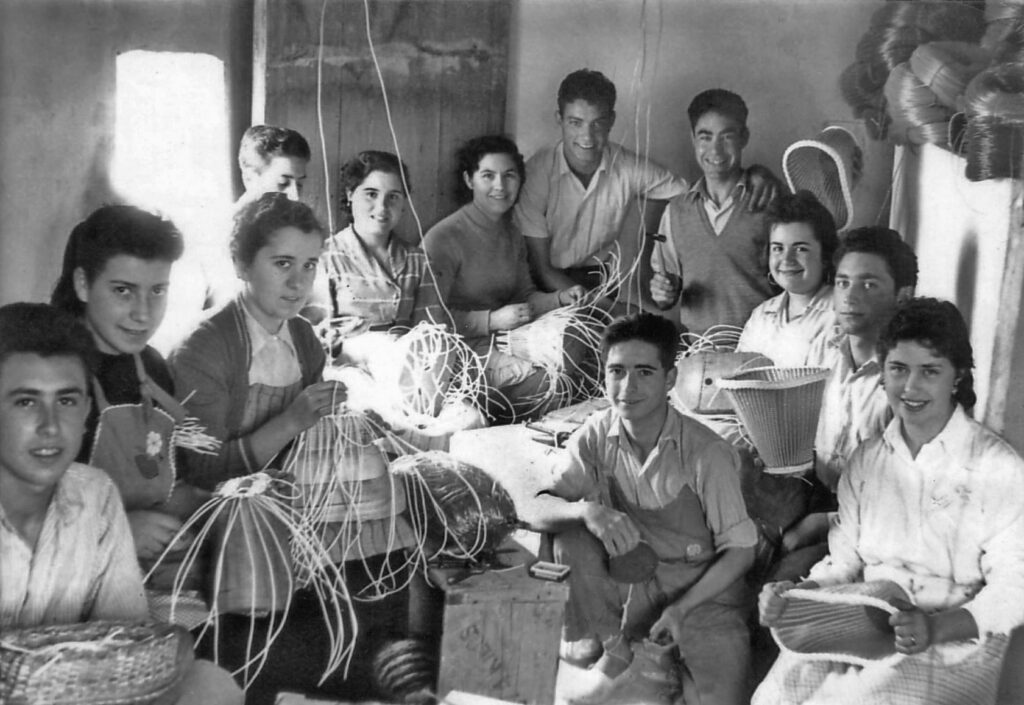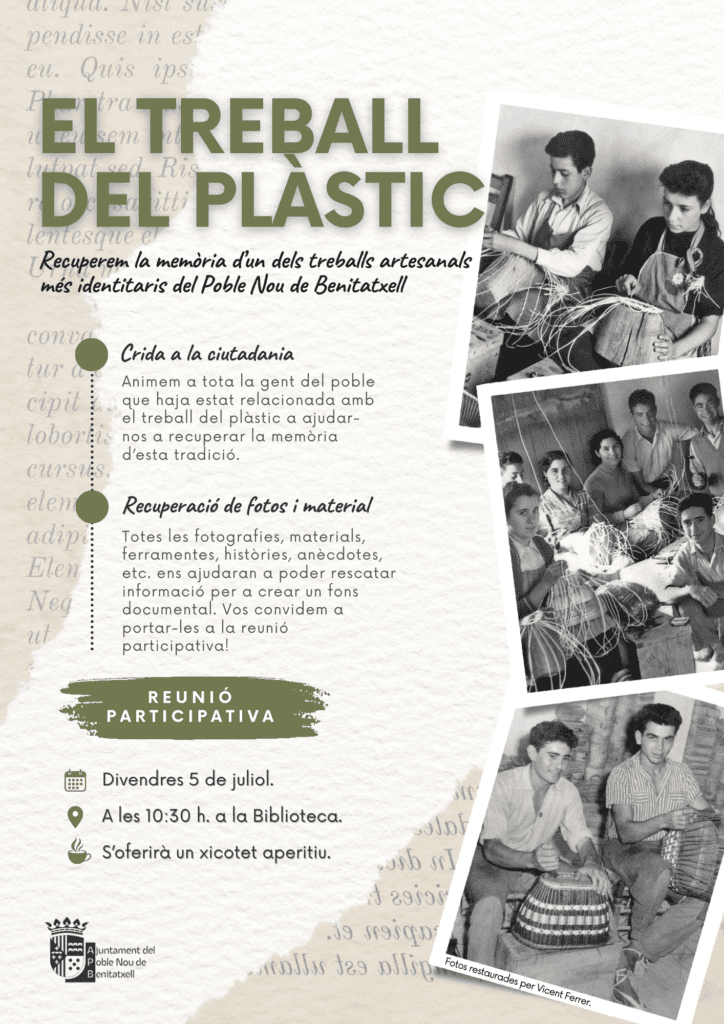
El Poble Nou de Benitatxell wants to revive the memory of one of the most distinctive handicrafts: plastic work. During the second half of the 1950s, before the arrival of mass tourism, an unforeseen event transformed many aspects of the economic and socio-cultural life of El Poble Nou de Benitatxell. It was the arrival of what the locals colloquially called «plastic», a very general concept that defined all the tasks related to the work of making plastic baskets or bags, distributed in the factories, workshops or warehouses that existed in the municipality.
A decade later, the production and assembly work was partly transferred to private homes and what is known as the «domestic system», «putting out system» or home workshop was introduced, a way of working where the employer provided the raw materials (plastic, reed, twine for the handles, etc.) and which was characterised by the flexible working hours that allowed for combining agricultural and/or domestic tasks, was outside of any labour regulations and meant an increase in the number of hours worked per day by women in the new work.
In order to retrieve this particular practice of the municipality to document it and enhance its value, the Council, through the Councillor of Patrimony, has organised a participative meeting to be held next Friday July 5th, at 10:30 am, at the Municipal Library.
«We encourage everyone who has been involved in the plastic work to help us to recover the memory of this tradition, which is so particular and identifies our town, either by contributing their memories and information, or by contributing photographs, materials, tools, etc.», said the councillor of the area, Víctor Bisquert. The main objective, he explained, is to create a documentary collection and gather as much information as possible about this trade before the oral testimonies of those who participated in it in first person disappear.
It is also expected to be the first stone of ‘La llar del record’, a large-scale project in which several councillors and areas are working together and which seeks to recuperate the oral and graphic memory of the town.
